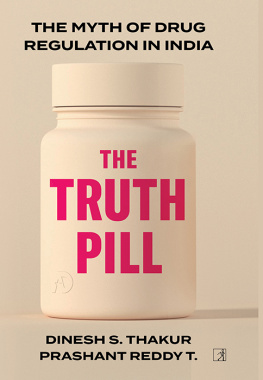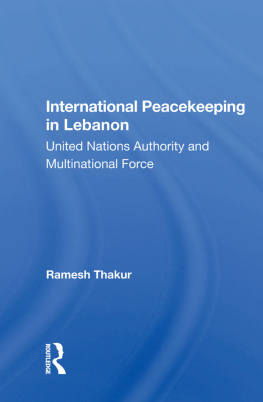
Sociology and Management Education
While examining the intersections and engagements between sociology and management education in historical and contemporary terms, this slim volume outlines the agenda of a promising prospective engagement between the two. It specifically foregrounds the Indian experience without being indifferent to the global context that has shaped the unprecedented rise of business schools. Employing a perspective from the Global South, it contextualises the dominance of the US model of management curriculum and disciplinary practices in relation to wider geopolitics of knowledge production. Parenthetically, it presents a critical assessment of Indian scholarly contributions to the field of management studies. This book should be of interest to management educators, administrators, and sociologists besides the students and researchers in the broad area of organisation studies.
Manish Thakur is Professor at the Public Policy and Management Group, Indian Institute of Management Calcutta, Kolkata.
Routledge Focus on Management and Society
Series Editor: Anindya Sen, Professor of Economics, Indian Institute of Management Calcutta, Kolkata, West Bengal, India
The invisible hand of market has today been replaced by the visible hand of managerial capitalism. As the power and role of the managers have expanded, the world also has become more dynamic and volatile. To run their organisations more efficiently, the managers need to be aware of new developments taking place all around them. The Focus series addresses this need by presenting a number of short volumes that deal with important managerial issues in the Indian context. Volumes in the series will cover topics not only of perennial interest to managers but also emerging areas of interest like neuromarketing. Some of the well-established areas of research like bottom-of-the-pyramid marketing will be dealt with specifically in the Indian context, as well as critical developments in other fields, like Auction Theory.
The series is designed to introduce management theorists and researchers (as well as the lay public) to a diverse set of topics relevant directly or peripherally to management in a concise format without sacrificing basic rigour.
Other Books in this series
Excellence in Supply Chain Management
Balram Avittathur and Debabrata Ghosh
Digital Cultures
Smeeta Mishra
For a full list of titles in this series, please visit: https://www.routledge.com/Routledge-Focus-on-Management-and-Society/book-series/RFMS
First published 2022
by Routledge
2 Park Square, Milton Park, Abingdon, Oxon OX14 4RN
and by Routledge
605 Third Avenue, New York, NY 10158
Routledge is an imprint of the Taylor & Francis Group, an informa business
2022 Manish Thakur
The right of Manish Thakur to be identified as author of this work has been asserted in accordance with sections 77 and 78 of the Copyright, Designs and Patents Act 1988.
All rights reserved. No part of this book may be reprinted or reproduced or utilised in any form or by any electronic, mechanical, or other means, now known or hereafter invented, including photocopying and recording, or in any information storage or retrieval system, without permission in writing from the publishers.
Trademark notice: Product or corporate names may be trademarks or registered trademarks, and are used only for identification and explanation without intent to infringe.
British Library Cataloguing-in-Publication Data
A catalogue record for this book is available from the British Library
Library of Congress Cataloging-in-Publication Data
A catalog record has been requested for this book
ISBN: 9781032191089 (hbk)
ISBN: 9781032191171 (pbk)
ISBN: 9781003257813 (ebk)
DOI: 10.4324/9781003257813
Typeset in Times
by KnowledgeWorks Global Ltd.
For Amrendra Mama, in gratitude
&
Chutkun, in friendship
Contents
- Becoming a science: The quest for academic respectability
- Meandering pathways: Betwixt the national and the global
- Privileging critique: Sociology and its metamorphosis into critical management studies
- Conclusion: Disciplinarity, inter-disciplinarity, and the new academy
- 2 Becoming a science: The quest for academic respectability
- 3 Meandering pathways: Betwixt the national and the global
- 4 Privileging critique: Sociology and its metamorphosis into critical management studies
- 5 Conclusion: Disciplinarity, inter-disciplinarity, and the new academy
Preface
At a personal level, this book is an attempt to make sense of my institutional shift from a department of sociology of an Indian University (Goa) to an Indian Institute of Management (Calcutta). However, it is not about an aspect of my intellectual biography alone. Nor is it a free-flowing narrative of purely personal experiences of mine as a sociologist. At a time when the academic world is increasingly subjected to the spirited demands of reflexivity, I go back to C. Wright Mills classic The Sociological Imagination (1959) as any old-fashioned student of sociology would do to remind myself of the need to cultivate the awareness of the relationship between personal experience and the wider society (1959: 5). In fact, students of sociology are enjoined to self-consciously develop an outlook on life that involves a deep understanding of the intersectionality of ones biography and the historically embedded social processes. It is this appreciation of the necessary interplay of the individual and the larger social context that constitutes what Mills evocatively termed the sociological imagination. It means a cultivated ability of a person to think ourselves away from our daily routines and look at them anew while connecting personal troubles to public issues (1959: 7). Viewed thus, this book is an attempt to sociologically look at the historically evolving relationship between sociology and management as academic disciplines dotting the contemporary institutional landscape of higher education.
Indeed, an implicit engagement with elements of my intellectual biography animates this endeavour to illuminate the intricacies of relationships between the changing fortunes of two related disciplines sociology and management. For years now, I have spent a great deal of time thinking, reading, and occasionally writing about the ways in which the two disciplines of sociology and management could speak to and benefit from each other. In 2010, I published an interim reflection on the relationship between sociology and management in the specific context of the Indian Institutes of Management (IIMs), which appeared in a collection of essays edited by Maitrayee Chaudhuri under the title Sociology in India: Intellectual and Institutional Practices. In hindsight, that essay appears a rambling lament of a young sociologist on the lookout for disciplinary certitude. A few years later, in 2017, as a co-editor (with my colleague R. Rajesh Babu) of the volume titled Management Education in India: Perspectives and Practices, I gained significant insights into the general relationship between management and related academic disciplines. I also got a wider perspective on the history of management education in India. Yet, as the title itself reveals, my thinking remained largely India-centric. The current volume amplifies some of these earlier themes in new ways. Unavoidably, there are certain repetition of ideas and themes across chapters. However, the book is refreshingly novel in its conceptualisation and execution and not a compendium of old (albeit revisited) ideas.













